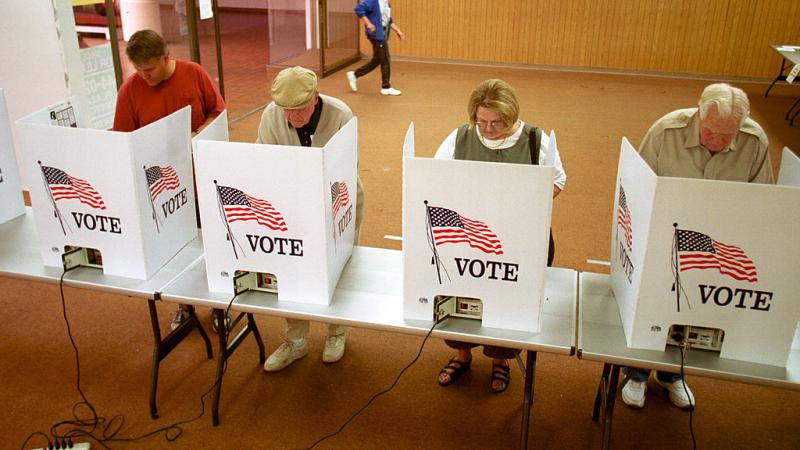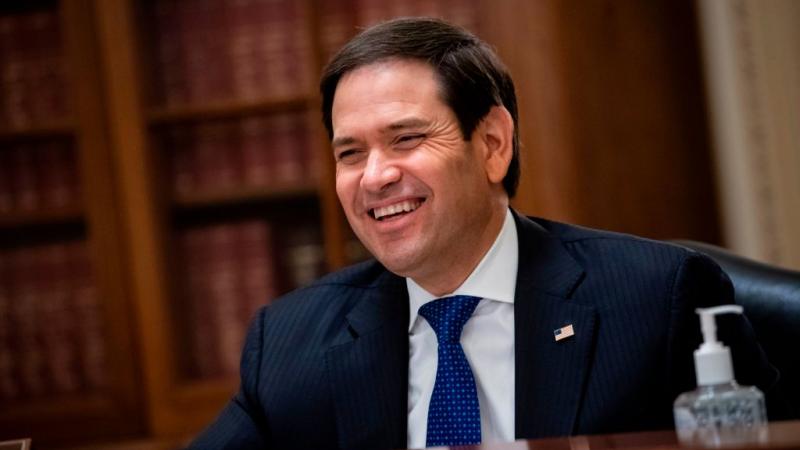Not so green? Dems offer to push Manchin's pipeline to secure his support for $739B climate plan
Sen. Kyrsten Sinema's office has remained tight-lipped about her position on the agreement.
Democratic Party leadership made promises related to an oil pipeline and other energy priorities in order to lock down West Virginia Sen. Joe Manchin's vote for a $739 billion spending package with historic funding levels for climate-related programs.
Democrats hope to pass the spending bill via budget reconciliation, a procedural tactic that would enable the party to get around the Senate filibuster and force the measure through on a party-line vote in the 50-50 chamber.
Manchin's office has released new details about the deal he reached with Senate Majority Leader Chuck Schumer, which has the support of House Speaker Nancy Pelosi and President Biden.
"President Biden, Leader Schumer and Speaker Pelosi have committed to advancing a suite of commonsense permitting reforms this fall that will ensure all energy infrastructure, from transmission to pipelines and export facilities, can be efficiently and responsibly built to deliver energy safely around the country and to our allies," Manchin said in a statement.
According to a document outlining the framework of the agreement, Congress would "require the relevant agencies to take all necessary actions to permit the construction and operation" of the Mountain Valley Pipeline, a project Manchin has long sought to deliver. The 304-mile pipeline spanning from southern Virginia to northwestern West Virginia has faced setbacks over opposition from environmental groups. Manchin said on Tuesday the pipeline would help lower gasoline prices and create 2,500 construction jobs.
"The only way you can get those prices down is by manufacturing and competing more, producing more, and that's what this is about," Manchin said. "So when the president made a commitment on this, I think he looked at the whole energy portfolio of what we have and what we need right now, coming to the realization that we've got to have product in the market. And this is one way to do it, and so I'm very pleased about this."
Manchin's office has confirmed that the terms in the document are part of the agreement Democratic leaders reached with Manchin, who reversed course and expressed public support for a revised Build Back Better Act that spends hundreds of billions on climate change programs, including extending a $7,500 tax credit on electric vehicle purchases.
Democrats have dubbed the revamped spending package the "Inflation Reduction Act" in a bid to disarm critics who argue the massive new spending bill will further fuel inflation already running at historically high levels.
Virginia Democratic Sen. Tim Kaine cautioned that the leadership deal with Manchin doesn't commit individual Democratic senators to support the pipeline.
"There is no connection between voting on the Inflation Reduction Act and then having to vote for the Mountain Valley Pipeline or a permitting bill," said Virginia Democratic Sen. Tim Kaine.
"The deal was [that] in exchange for getting an agreement on the Inflation Reduction Act, we will have the opportunity to debate and vote on permitting improvements, but no one's made commitments about how they're going to vote, and I'm certainly not going to make a commitment until I see what that bill is," he added.
The agreement, which is currently being drafted into legislative language, would also create a first-ever tax credit for used EV purchases. The bill includes federal funding to lower prescription drug prices and expands taxpayer-funded Obamacare subsidies. It includes a 15% minimum tax on corporations and would raise taxes on those earning $400,000 or more.
Arizona Democratic Sen. Kyrsten Sinema has not expressed support for the agreement. She apparently was not part of the direct negotiations between Manchin and congressional leaders. It remains to be seen what Biden and Democratic leaders might offer Sinema to secure her vote, given that all 50 Democrats need to be on board for the reconciliation bill to pass.
Her office has been tight-lipped about her position on the agreement, but sources close to the senator said she is interested in eliminating the provision that would close the "carried interest" tax loophole. Sinema also reportedly wants Democratic leaders to add "drought resiliency funding" to the bill because her home state suffers from water supply issues.














